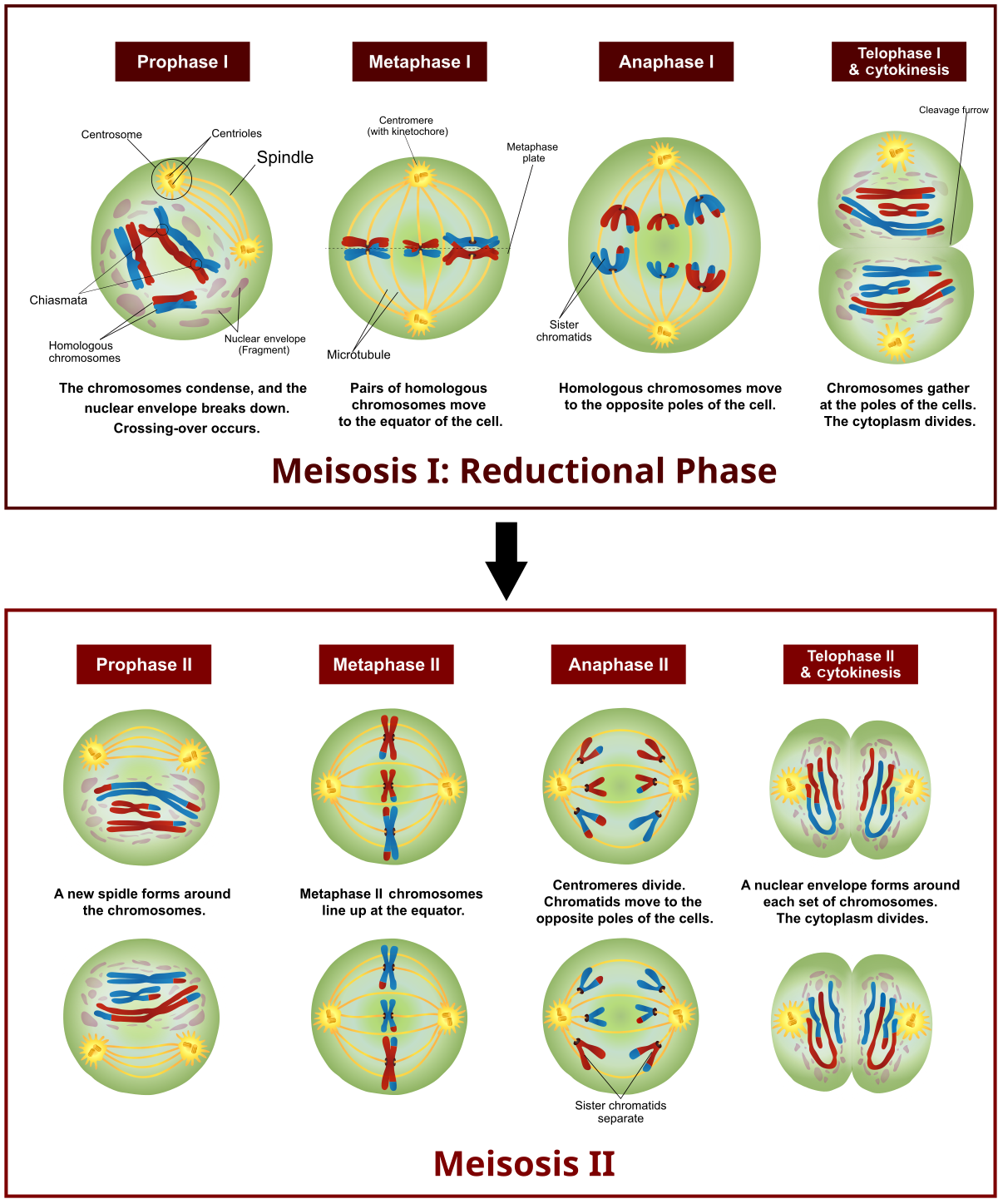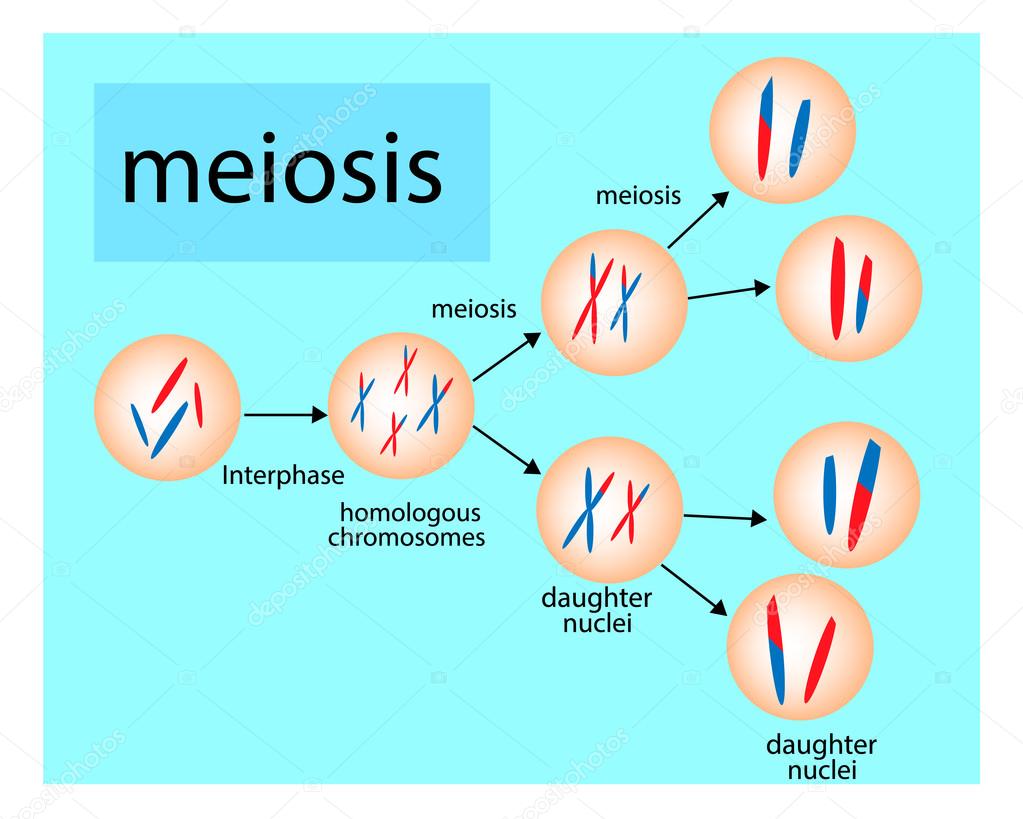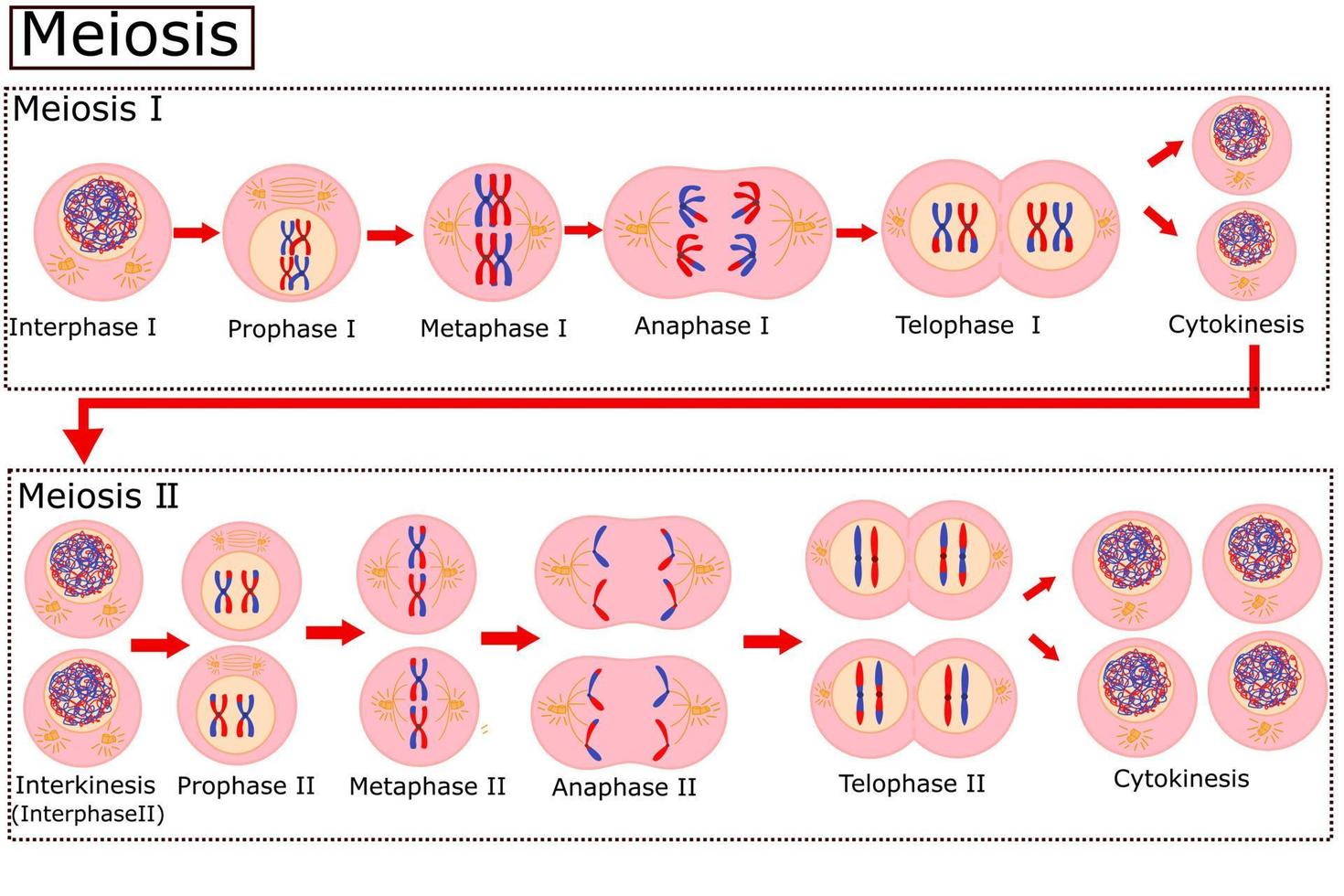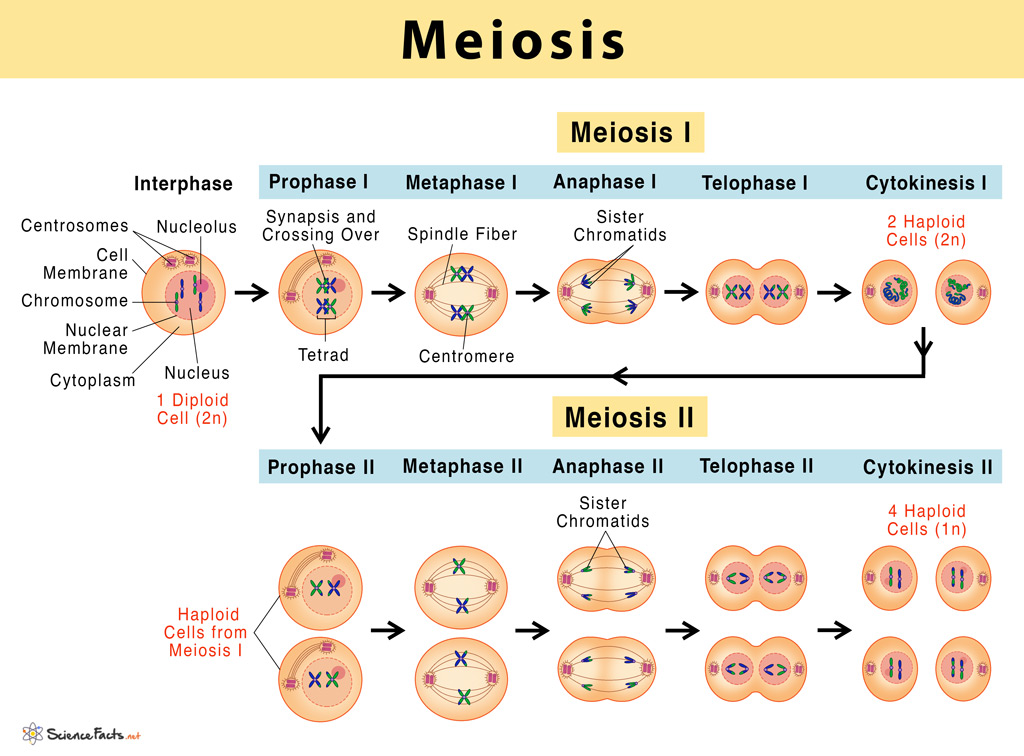Low battery
Battery level is below 20%. Connect charger soon.
· meiosis is a type of cell division that reduces the chromosome number by half (2n to n), leading to the formation of four non-identical daughter cells. · the body is made up of trillions of somatic cells with the capacity to divide into identical daughter cells facilitating organismal growth, repair, and response to the changing … · meiosis i concludes with telophase i and cytokinesis, where chromosomes decondense, nuclear envelopes may reform, and the cell divides into two haploid daughter cells. · meiosis is a cell division process where a single (parent) cell divides twice to produce four independent (daughter) cells, each having half the chromosomes as the original cell. Many organisms package these cells into … · meiosis is a type of cell division in sexually reproducing eukaryotes, resulting in four daughter cells (gametes), each of which has half the number of chromosomes as compared to … It involves two rounds of division … · meiosis is a form of cell division in sexually reproducing organisms wherein two consecutive nuclear divisions (meiosis i and meiosis ii) occur without the chromosomal … Meiosis (/ maɪˈoʊsɪs / ⓘ) [a] is a special type of cell division of germ cells in sexually-reproducing organisms that produces the gametes, the sperm or egg cells. It is crucial for sexual … In humans, body (or … · meiosis is the process in eukaryotic, sexually-reproducing animals that reduces the number of chromosomes in a cell before reproduction. · meiosis, division of a germ cell involving two fissions of the nucleus and giving rise to four gametes, or sex cells, each with half the number of chromosomes of the original cell. · meiosis is a type of cell division in sexually reproducing organisms that reduces the number of chromosomes in gametes (the sex cells, or egg and sperm).




